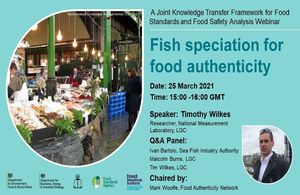Secretary-General Guterres, Ministers, friends.
It is an absolute honour to join you all to mark the 75th anniversary of the United Nations.
In a year which is going to be momentous for progress on tackling climate change.
And no organisation has done more to bring countries together to tackle the threat of climate change than the United Nations.
And I want to thank the Secretary-General for his continued and incredibly decisive leadership on this issue.
And also I want to thank all of you, who have contributed to today’s discussion, for your leadership.
We have had some brilliant contributions today and I wanted to give just a few examples.
We’ve heard about Nigeria connecting five million homes with solar power.
We’ve heard about Ethiopia expanding energy access across through off-grid renewables.
We’ve heard about Germany phasing out coal and doubling climate finance.
We’ve heard about Spain legislating for net zero and supporting a just transition.
Of course, the African Development Bank supporting transformational projects across the continent.
And I think what this shows is that it is absolutely vital that we continue to work together in this way collaboratively.
Because tackling the climate crisis requires a truly global effort.
Rising sea levels, heatwaves, mega storms and droughts – these do not respect borders and frontiers.
And that is why we need everyone to play their part.
Whether it is Governments, or regions and development banks, business, investors, and civil society.
We all understand that a truly global effort to respond to a global crisis.
As you have heard from our Italian partners, we are putting climate action at the heart of the international agenda this year.
Through our work on COP26 and also our respective G7 and G20 presidencies.
And it is why a key goal of my COP26 Presidency is enhancing international collaboration, which is vital..
This is needed to deliver the transition required in mitigation, adaptation and finance.
And I have said it before, and I say it once again.
The golden thread of climate action must be woven through every international gathering that we have this year.
By working together, we can innovate faster, create economies of scale, and strengthen incentives for investment.
But we will only access those gains, by tailoring our approach to each challenge or sector.
That is why I welcome the IEA’s excellent plans for a Net Zero roadmap.
Setting out what must be done in each sector, to reach net zero by 2050.
It is why I am proud to work with Germany, Italy, Morocco and other friends on Mission Innovation.
Speeding up clean energy innovation.
And it is why our COP26 campaigns are focussing global efforts on five critical challenges:
Nature, finance, adaptation, transport, and, of course in the context of our discussion today, energy.
We all know that the power sector exemplifies the benefits of collaboration.
The IEA, and our friend Fatih Birol, tell us that the global transition to clean power must move at least four times faster than the current pace, if we are to keep our Paris targets within reach.
And we must do so in a way that is fair to all, whilst increasing access to electricity around the world.
Of course, action from individual states is vital.
Ethiopia’s have had a recent deal for a 100 mega-watt wind farm.
Or Morocco’s Noor Solar Complex – the world’s largest concentrated solar plant.
Our efforts in this area reinforce one another.
And they allow us to make progress faster.
Civil society has helped build support for clean power in many countries.
As we’ve heard, economies of scale have reduced costs for everyone.
Solar and wind power costs have fallen by 28% and 15% respectively, each time global deployment has doubled.
Together, we can build on these gains.
And support the transition in developing countries.
Bringing the economic and environmental benefits of clean, resilient, affordable power to people around the world.
It is an absolute pleasure to work with all of you here to achieve this.
With Ethiopia, Germany, Italy, and Senegal, and others, the UK is a member of the Powering Past Coal Alliance, driving that move away from coal.
And as part of our COP26 campaign on clean power, the UK has launched the Energy Transition Council.
I am incredibly grateful to the brilliant Damilola Ogunbiyi for co-chairing the group, it’s making a big, big difference.
And of course all of you here for taking part.
Thank you so much!
The Council brings together political, financial and technical leaders in the global power sector.
And works with business and civil society, to accelerate the move from coal to clean power, in a way that is fair to all.
And to improve the international support to developing countries.
So friends, I say this to you – by working together, we can achieve the clean energy transition, at the scale and pace that is actually required, whilst protecting jobs and livelihoods.
If I can say this to us all, this is our moment in history to make those vital, decisive and positive choices, so that we can protect the future of our planet and our peoples.
So let’s continue to work together, to bring the benefits of clean, affordable and resilient power to the world.
And I give you my pledge, we will do everything we can together to see success at COP26.

